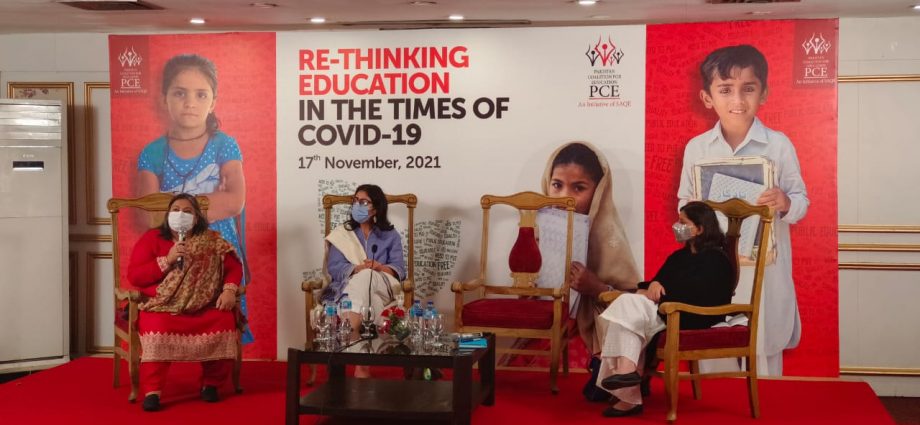Experts for stakeholders’ say on post-Covid challenges for youth
ISLAMABAD ( web News )
Experts at a panel discussion have emphasized for a major role of stakeholders especially parliamentarians, educationists and parents for moving forward with education agenda to resolve host of critical issues and limitations created with the Covid-19 pandemic in the country.
The policy discussion was organized by the Pakistan Coalition for Education (PCE) as part of its 12th Annual Convention in Islamabad with a theme “Re-thinking education in the times of Covid-19”.
Sharmila Faruqui, former Advisor to Sindh Chief Minister, Deputy Focal Person Policy Planning and Implementation Unit Balochistan Abdul Khaliq, and National Coordinator of PCE, Zehra Arshad, were the main participants of the discussion.
They discussed the grave situation created by the Covid-19 pandemic in the country and its negative impacts especially on the education sector.
The discussion revolved around the urgent need for all stakeholders, especially the parliamentarians to come together and address the areas where the existing public education system, and more recently, the digital education is falling short in accommodating the needs of the marginalized communities.
Sharmila Faruqui, former Advisor to Sindh Chief Minister, was of the view that the youth does not have proper accessibility to technology such as smartphones, laptops, and the Covid-19 has highlighted this inequality.
She mentioned that only 32 percent of students across the country reported that learning material was provided by their schools during the lockdowns. The most important aspect to promote education is poverty reduction. “We also need to have focus on social protection programs to ensure that children especially girls are protected,” Sharmila said suggesting that trainings and legislations must be done to have better results, she added.
Participating in the discussion, Abdul Khaliq, Deputy Focal Person – Policy Planning and Implementation Unit Balochistan suggested to look at different models currently in practice to adopt in Balochistan keeping in mind the extensive challenges and poverty in the province.
He said that they need a system that ensures the continuity of learning in the future. “Our government has allowed us leverage as they have created new positions of IT teachers to facilitate the process of online education which is an achievement of the institute,” he explained.
National Coordinator of PCE, Zehra Arshad, gave an overview of the educational landscape under the COVID and explained how important it is to ensure inclusivity.
She emphasized the governments to review policies and plans by including all partners and stakeholders like civil society organizations, parents and teachers across the board to ensure their voices are heard and incorporated into the policy making process to transform education in the post-pandemic era.
Executive Director Pakistan Youth Change Adovcates, Areebah Shahid also stressed that standing committees of parliament should have effective oversight to cover marginalized children mainly girls, children with disabilities and students belonging to low socio-economic.
Other participants of the discussion included Research Fellow at I-SAPS Abdullah Alam, Managing Director SCSPEB Balochistan Irfan Ahmed Awan, Program Director Shawana Shah, Chief Executive Thar Education Alliance Sindh Partab Shivani, Chief Executive AwazCDS – Punjab, Zia Ur Rehman and Pakistan Programme Director Malala Fund Javed Malik.

